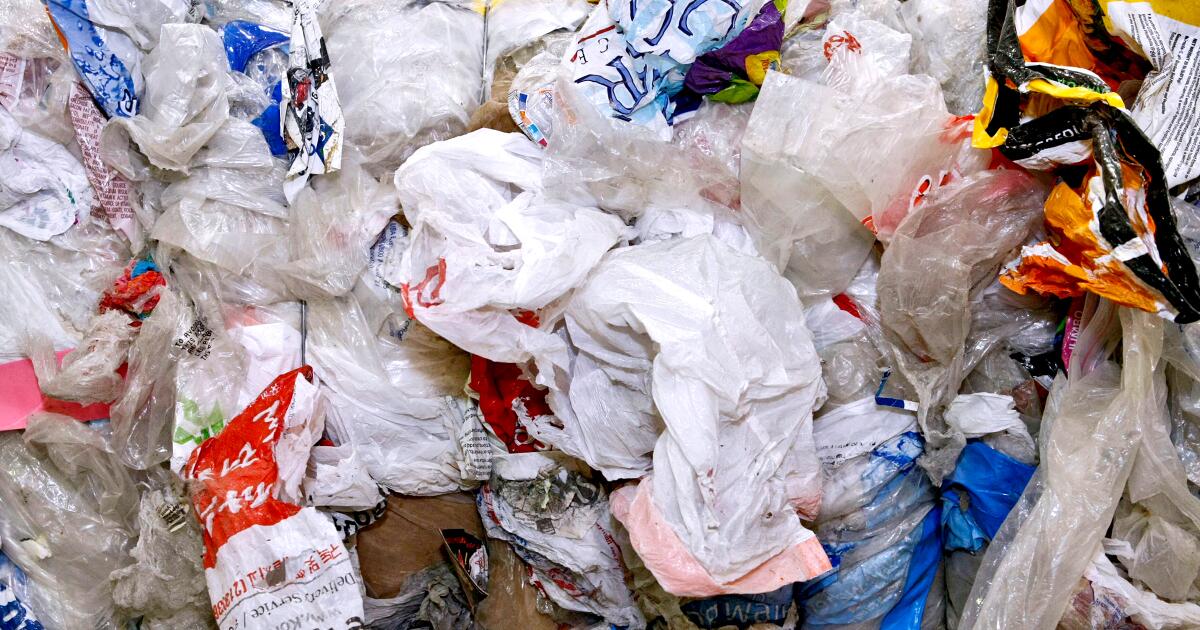- cross-posted to:
- environment
- cross-posted to:
- environment
It was a decade ago when California became the first state in the nation to ban single-use plastic bags, ushering in a wave of anti-plastic legislation from coast to coast.
But in the years after California seemingly kicked its plastic grocery sack habit, material recovery facilities and environmental activists noticed a peculiar trend: Plastic bag waste by weight was increasing to unprecedented levels.
According to a report by the consumer advocacy group CALPIRG, 157,385 tons of plastic bag waste was discarded in California the year the law was passed. By 2022, however, the tonnage of discarded plastic bags had skyrocketed to 231,072 — a 47% jump. Even accounting for an increase in population, the number rose from 4.08 tons per 1,000 people in 2014 to 5.89 tons per 1,000 people in 2022.
The problem, it turns out, was a section of the law that allowed grocery stores and large retailers to provide thicker, heavier-weight plastic bags to customers for the price of a dime.



Germany did this years ago. Seems to work. You can still get plastic bags, but you have to pay for them.
That’s what the article is saying.
The intent was to drop plastic usage. It did, but plastic usage multiplied because the plastic bags people are paying for contain more plastic than before.
Another German law states that if you make a product, like a plastic bag, you must pay for its disposal after use. That way, if a product changes, the manufacturer bears the cost. Does drive prices up, though.